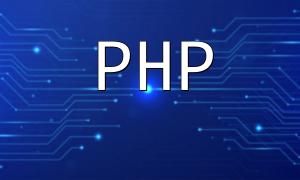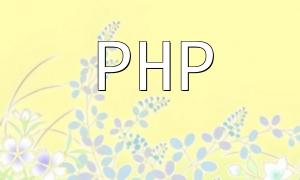JSON (JavaScript Object Notation) is a lightweight, human-readable data exchange format widely used in modern web development. It is easy for both humans to read and write and machines to parse. JSON significantly enhances data transmission efficiency and simplifies development processes, especially in front-end and back-end communication.
PHP offers two essential built-in functions, json_encode() and json_decode(), which convert PHP data structures to JSON strings and parse JSON strings into PHP arrays or objects, respectively. Mastering these functions is crucial for working with JSON data.
You can convert a PHP array to a JSON string using json_encode(). Here's an example:
$array = array("name" => "John", "age" => 30, "city" => "New York");
$json = json_encode($array);
echo $json; // Outputs: {"name":"John","age":30,"city":"New York"}
Using json_decode(), you can convert a JSON string into a PHP array by setting the second parameter to true:
$json = '{"name":"John","age":30,"city":"New York"}';
$array = json_decode($json, true);
print_r($array); // Outputs: Array ( [name] => John [age] => 30 [city] => New York )
If you omit the second parameter or set it to false, json_decode() returns a PHP object:
$json = '{"name":"John","age":30,"city":"New York"}';
$object = json_decode($json);
echo $object->name; // Outputs: John
Encoding or decoding errors may occur during JSON handling. PHP provides json_last_error() and json_last_error_msg() functions to detect and return error messages, aiding in debugging:
$json = '{"name":"John", "age":30, "city": "New York}'; // JSON format error, missing quote
$array = json_decode($json, true);
if (json_last_error() !== JSON_ERROR_NONE) {
echo 'JSON Error: ' . json_last_error_msg();
}
Mastering JSON handling in PHP is vital for improving web development efficiency and maintainability. Whether dealing with simple arrays or complex objects, you can easily convert data between PHP and JSON formats using json_encode() and json_decode(). Proper error handling also helps minimize issues during development.
Understanding these techniques will empower you to work more flexibly and efficiently with JSON data in real-world projects, optimizing your data exchange workflows.










